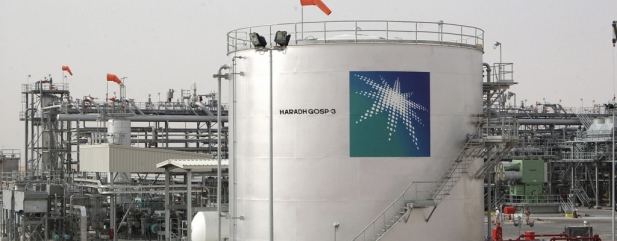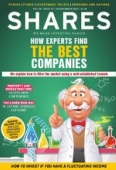Archived article
Please note that tax, investment, pension and ISA rules can change and the information and any views contained in this article may now be inaccurate.
A safer way to get international exposure

There’s a neat trick investors can use to gain exposure to international earnings without buying a single overseas-listed stock. The US, Europe, China, India plus emerging markets in Latin America, Asia, Africa and the Middle East are all accessible from the relative comfort of the London stock market.
Companies in the FTSE 100 collectively earn far more from overseas markets than they do from the UK. Estimates typically range from anywhere between two-thirds to around three-quarters of sales.
Take Vodafone (VOD) for example, which has large mobile phone operations in India, Africa and across parts of Europe. Drinks firm Diageo (DGE) sells more Guinness in Nigeria than it does in Ireland, while banking group Standard Chartered (STAN) has its headquarters in the UK but generates 95% of profit in Asia, Africa and the Middle East.
Investing via investment trusts is one of the easiest ways to get exposure to multiple FTSE 100 stocks in one go.
Regulations provide a safety net
The real bonus for UK-based investors is that companies listed in London must conform to some of the most stringent corporate governance rules in the world.
‘These often benefit from stronger corporate governance standards than other jurisdictions,’ says Lucy Macdonald, fund manager at Brunner Investment Trust (BUT).
That makes investing on the London stock market a significantly safer bet than China or Russia, for example where the financial sector and state governance are widely considered to be less robust.
Just look at the uproar from the investment community when the UK’s chief markets watchdog the Financial Conduct Authority (FCA) proposed changes to listing rules. The potential changes are designed to beat New York to a possible London flotation of Saudi Aramco, the world’s largest oil producer and controlled by the Saudi royal family.
Financial controversies
This is not to suggest that the London stock market is without its controversies. The £671m fine handed out to aerospace group Rolls-Royce (RR.) over bribery claims at the start of this year is a good example. As is BT’s (BT.A) discovery of a £530m accounting black hole at its Italian business, which wiped nearly £8bn off the group’s market value.
Even so, there are arguably no better stock market regulations anywhere in the world.
‘UK companies allow investors access to overseas growth while enjoying our high level of legal protections and corporate governance rules,’ says Simon Gergel, manager of Merchants Trust (MRCH).
Merchants was set up in 1889 and has increased dividend payouts annually for 34 consecutive years. It concentrates on UK-based companies, mainly in the FTSE 100 index.
Dividends sit front and centre of the investment trust’s investment policy.
Solid fundamentals
Beyond income attractions, Gergel says he looks for companies with strong cash flows and good fundamentals. ‘I look at their balance sheets and management and I also look to pay a reasonable price for the shares,’ he adds.
His top picks at the moment include oil produces BP (BP.) and Royal Dutch Shell (RDSB), and banking group HSBC (HSBA).
But it is not just multi-billion pound UK companies that offer exposure to overseas growth. Many AIM companies are also truly international. Richard Power, head of quoted smaller companies at Octopus Investments, has previously flagged his support for the likes of biotech research tools supplier Abcam (ABC:AIM), adhesive products manufacturer Scapa (SCPA:AIM), and RWS (RWS:AIM), which sells its intellectual property services all over the world.
Aim’s global appeal
James Halstead (JHD:AIM), Advanced Medical Solutions (AMS:AIM), Clinigen (CLIN:AIM), Craneware (CRW:AIM) and Gooch & Housego (GHH:AIM) are other AIM companies with worldwide reach identified by Power.
‘It is important that investors spread risk and the best way to achieve this is to invest globally,’ says Patrick Connolly of independent financial adviser Chase De Vere.
‘The cheapest way to do this is through a diversified investment trust, such as the Witan Investment Trust (WTAN) or a low-cost tracker fund such as the L&G Global 100 Index (GB00BG0QP265),’ he adds.
Witan has about a third of its assets invested directly in the UK, with the rest spread across the globe, with stakes in firms with international horizons like RELX (REL) and Unilever (ULVR). (SF)
Important information:
These articles are provided by Shares magazine which is published by AJ Bell Media, a part of AJ Bell. Shares is not written by AJ Bell.
Shares is provided for your general information and use and is not a personal recommendation to invest. It is not intended to be relied upon by you in making or not making any investment decisions. The investments referred to in these articles will not be suitable for all investors. If in doubt please seek appropriate independent financial advice.
Investors acting on the information in these articles do so at their own risk and AJ Bell Media and its staff do not accept liability for losses suffered by investors as a result of their investment decisions.
Issue contents
Big News
- Centrica’s yield could be a phantom menace
- UK banks pass latest stress tests
- New European-focused fund offers tastier way to play e-commerce logistics boom
- Tri-Pillar promises ‘completely different’ infrastructure proposition
- UK engineers in demand with customers and investors
- ConvaTec and Merlin to be ejected from FTSE 100

 magazine
magazine










